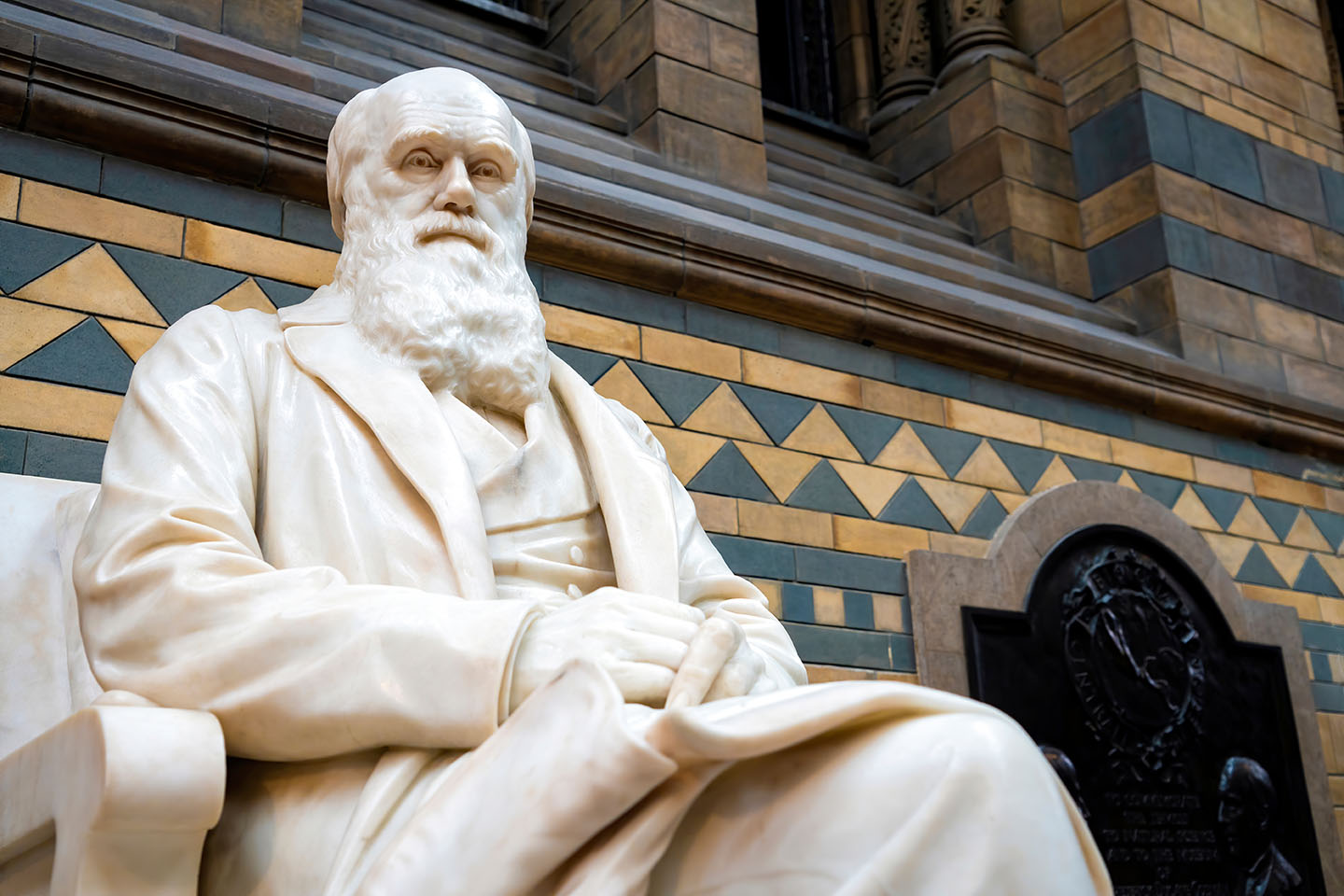

Charles Darwin was an English naturalist who lived from 1809 to 1882. He is best known for his theory of evolution by natural selection, which is the foundation of modern biology.
Darwin was born in Shrewsbury, England, and studied medicine and theology at the University of Cambridge. After graduating, he went on a voyage around the world on the HMS Beagle. During the voyage, he collected a vast amount of data on the different plants and animals he saw.
After returning from the voyage, Darwin began to study his data. He realized that there was a pattern to the way that different species evolved. He proposed that the fittest individuals in a population are more likely to survive and reproduce, passing on their favourable traits to their offspring. This process, over time, leads to the evolution of new species.
Darwin's theory of evolution by natural selection was published in 1859 in his book On the Origin of Species. The book was met with controversy, but it eventually became one of the most influential scientific works of all time.
Darwin's theory of evolution has had a profound impact on our understanding of the natural world. It has helped us to understand how different species have come to be, and it has also helped us to understand the role of humans in the environment.
Here are some of the key points of Darwin's theory of evolution:
Many scientists have followed in the footsteps of Charles Darwin, studying the natural world and trying to understand how it works.

Charles Darwin is a proper noun.
The name "Charles Darwin" comes from the following words:
Charles: A masculine given name of French origin, meaning "free man".
Darwin: A surname of English origin, meaning "dweller at the thorny place".
What is Charles Darwin famous for?
Question:
Charles Darwin is best known for his theory of evolution by natural selection. What are the main points of this theory?
Answer:
Charles Darwin's theory of evolution by natural selection is based on the following main points:
Variation: There is variation in all living things. This variation is caused by random changes in the DNA of living things.
Heritability: Some of this variation is heritable, which means that it can be passed on to offspring.
Selection: In nature, there is competition for resources. Those individuals with the most favourable variations are more likely to survive and reproduce.
Over time: Over time, these favourable variations will accumulate in the population, leading to the evolution of new species.
Darwin's theory of evolution by natural selection is one of the most important and influential theories in science. It has helped us to understand the diversity of life on Earth and the process by which new species are formed.
Address
Developing Experts Limited
Exchange Street Buildings
35-37 Exchange Street
Norwich
NR2 1DP
UK
Phone
01603 273515
Email
hello@developingexperts.com
Copyright 2025 Developing Experts, All rights reserved.